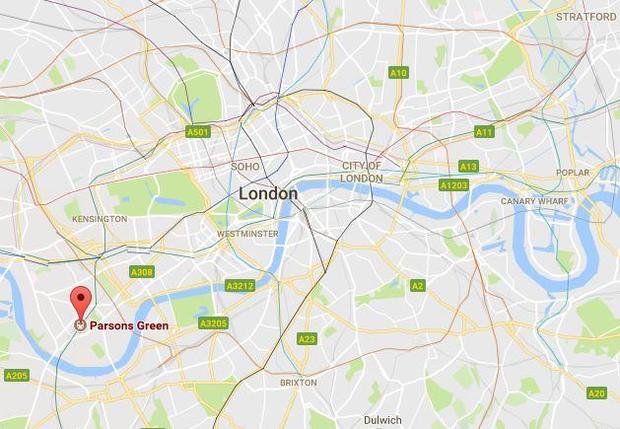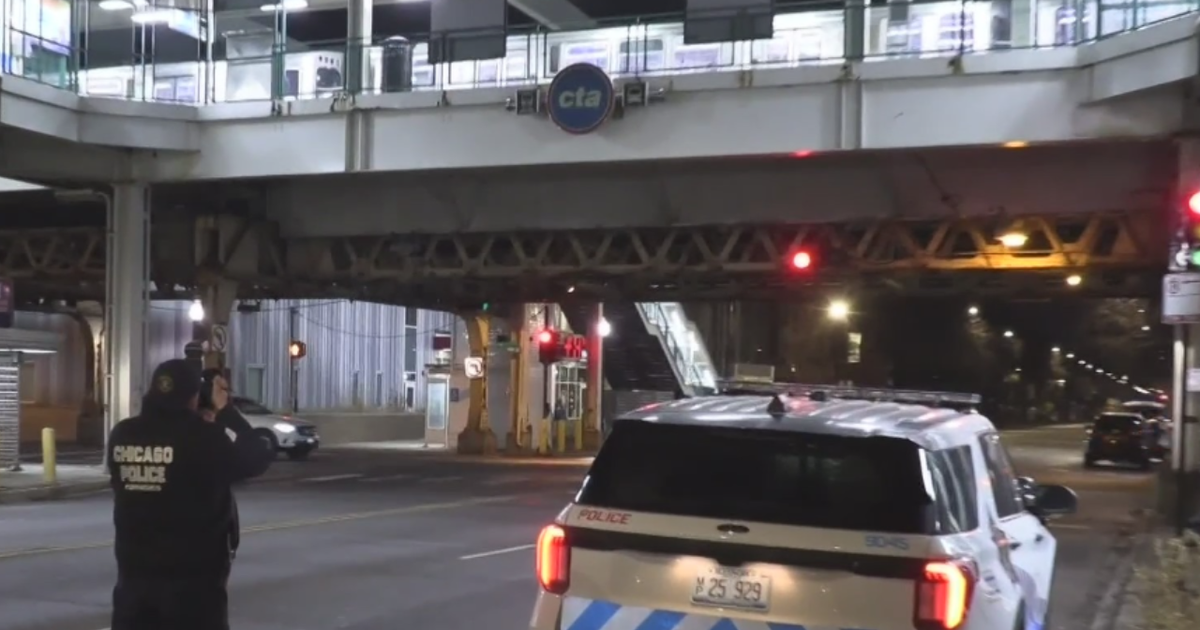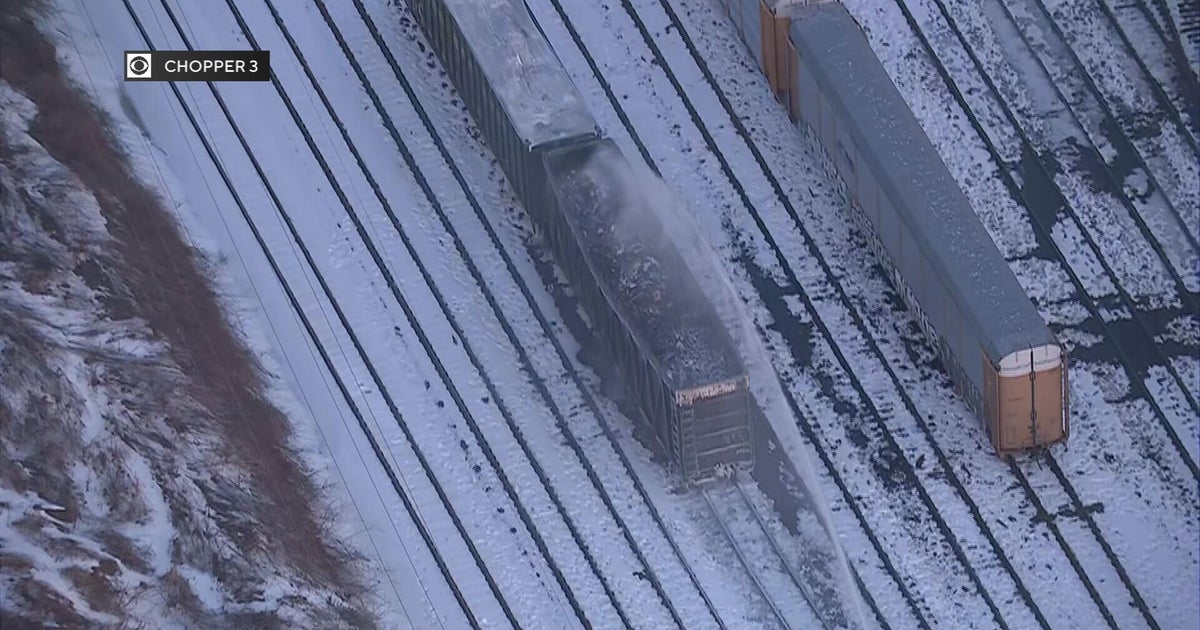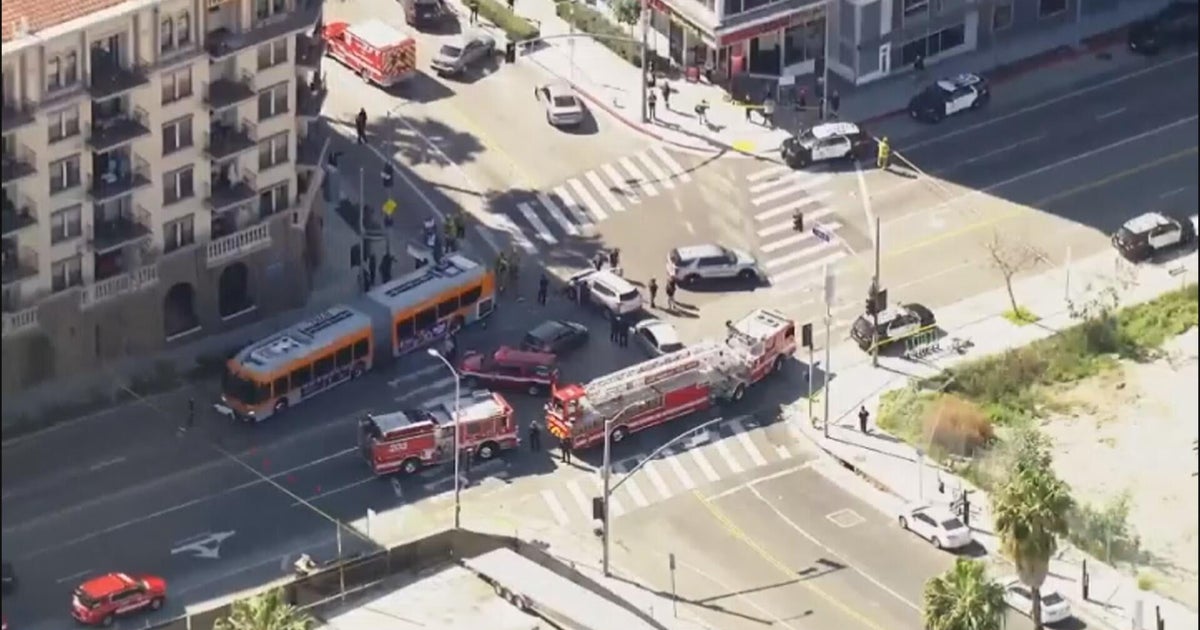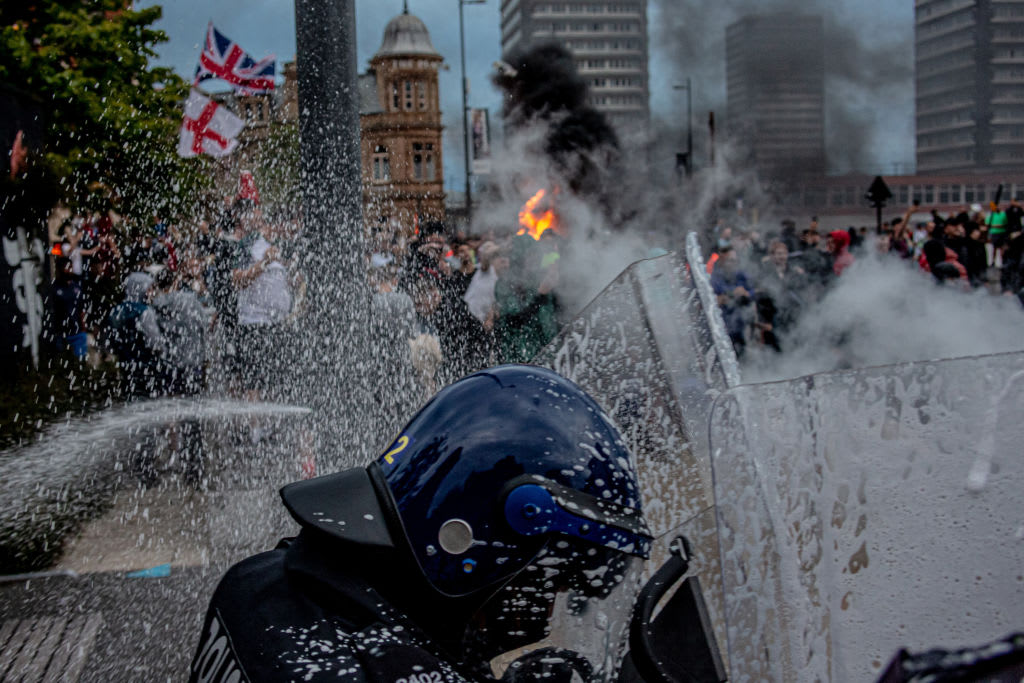London Underground explosion at Parsons Green tube station a "terrorist incident"
LONDON -- A Friday morning explosion at the Parsons Green London Underground train station caused panic and left at least 22 people injured in a bombing attack, but luckily caused no fatalities.
It quickly became clear that the attack could have been much worse, as the "improvised explosive device" used appeared to have failed, at least partially.
"Deputy Assistant Commissioner Neil Basu, the senior national coordinator for CT (counter-terrorism) policing, has declared it a terrorist incident," the Metropolitan Police said in a statement about two hours after chaos erupted on a train at Parsons Green station, in the southwest part of the British capital.
Commuters from the train posted photos on social media showing police and firefighters on the scene and describing panic as people escaped the train car and then got out of the station, which is an above-ground stop on the London Underground network, known as the tube.
London Ambulance Service said 18 people were taken to area hospitals with injuries, but that "none are thought to be in a serious or life-threatening condition." Four other people made it to London hospitals on their own with injuries from the attack.
Many of the injuries appeared to be "flash burns," according to the London police. Others were reportedly hurt in the crush as hundreds of commuters rushed to get out of the station.
Peter Crowly, who was on the train, told BBC News shortly after the incident that he "heard a large bang from other side of the tube train" and that a "firewall" flashed above his head. He posted photos on his Twitter account showing a burn to his forehead and a patch of hair that appeared to be scorched.
A U.S. law enforcement source tells CBS News senior investigative producer Pat Milton the homemade device was a white plastic bucket with a black cloth on top, with wires believed to be Christmas lights coming out of the bucket. The device included a timer and was carried in an insulated shopping bag, the source said.
Multiple photos posted online showed a large plastic bucket sitting inside a plastic shopping bag, with what looked like charring around the top of the bucket. Some photos showed small flames still burning around the package.
Other witnesses from inside the train reported seeing a large flash or fireball. There was no extensive damage seen around the bag containing the charred bucket. Some images appeared to show wires protruding from the top of the bag.
London police would not immediately confirm that the package was connected to the explosion. An officer at the scene described an "item exploding to a small degree" on the train.
Several hours later, Metropolitan Police Assistant Commissioner Mark Rowley said it was clear there had been a "detonation of an improvised explosive device" on the train.
He would only say police were chasing down "many urgent enquiries," including looking at security camera video from the area.
Rowley would not confirm explicitly that police were searching for any specific suspects in the attack. He said Britain's MI5 domestic spy agency was helping with what he called, "very much a live investigation." London Mayor Sadiq Kahn did acknowledge, however, in multiple interviews, that a manhunt was underway.
A security source with knowledge of that investigation told CBS News that, according to initial assessments, the bucket likely contained a homemade explosive consistent with use in recent terrorism incidents.
The use of a timer raises the question of whether the perpetrator was even on the train when it detonated. Loose screws were also found near the device -- thought to be intended for increased fragmentation, to cause more damage.
Richard Walton, former head of counter-terrorism at the Metropolitan Police and now a CBS News security consultant, said investigators would be trying to quickly determine if the small blast was caused by a viable explosive device. "Clearly the bomb has not done what it was intended to do, which was to kill and maim many people," Walton said.
If it was a viable bomb, a former bomb disposal officer tells CBS News it's possible that the bang and fire were caused by a detonator exploding, but failing to ignite the primary explosive charge.
London Underground suspended services on a stretch of the District Line, the one affected by the incident, but said the rest of the network would continue running. London police evacuated everyone within about 50 yards of the train, including some residences, later Friday "whilst specialist officers secure the remnants of the improvised device and ensure it is stable."
The London Fire Brigade confirmed in a tweet that firefighters had responded to a call at 8:21 a.m. (3:21 a.m. Eastern), during London's morning rush hour, at the busy station in the Fulham area.
A hazardous area response team from the London Ambulance Service responded, along with dozens of firefighters, and armed Metropolitan Police officers could also be seen around the station, which was sealed off completely.
British Prime Minister Theresa May was "receiving regular updates" on the situation at Parsons Green, according to her office.
London Mayor Sadiq Khan said in a statement that he would join May at a meeting later Friday of the national government's "COBRA" emergency response team.
New York Police Department Commissioner James O'Neill said in a tweet -- in which he included the photos of the white bucket and bag on the London tube train -- that the NYPD was "closely monitoring" the incident in London but that there were "no direct threats to" New York as of early Friday morning.
He encouraged New Yorkers to remain "vigilant/aware of surroundings."
President Trump, meanwhile, responded to the attack by calling the still-unknown suspect a "loser terrorist" and referring to "sick and demented people who were in the sights of Scotland Yard."
It was not immediately clear what the president meant by suggesting the perpetrator might have been "in the sights" of London's police department. Prime Minister May delivered what appeared to be a mild rebuke to the comments later Friday, telling the BBC when asked about Mr. Trump's tweet: "I never think it's helpful for anybody to speculate on what is an ongoing investigation."
Britain has been on its second-highest level of terrorism alert all year, and at least four incidents have been labeled terrorist attacks in 2017; in March, a man drove a vehicle into pedestrians on Westminster Bridge and then attacked police officers outside Parliament.
In May, a man claiming allegiance to ISIS blew himself up after an Ariana Grande concert in Manchester, killing 22 people.
In early June, another attack began with a vehicle plowing into people in the London Bridge area, before three men got out and attacked civilians with large knives.
The most recent terror attack in London was carried out by a Welshman on June 19. Darren Osborne is accused of carrying out a premeditated vehicle attack on Muslims as they left a mosque in the Finsbury Park neighborhood of North London.
